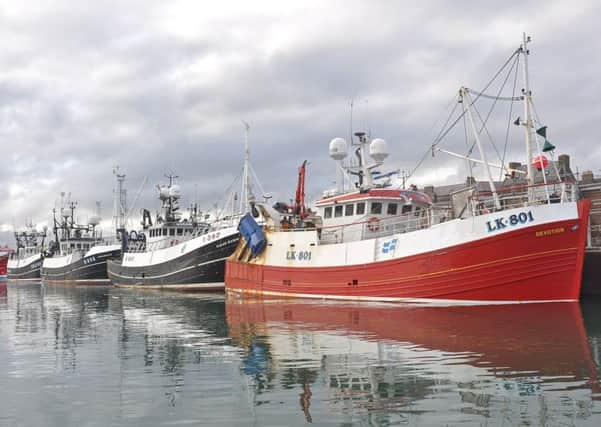Negotiating a sea of new opportunities


Squad managers would be appointed from an elite group chosen by UEFA and each country, no matter how strong their footballing tradition, would have strict limits imposed on their style of play. Players would have little say in the development of the game. The size of pitches and height of goals would be at the discretion of referees.
Sounds barmy, doesn’t it? But these have more or less been the rules of the game for the fishing industry since the UK joined the then EEC in 1973.
Advertisement
Hide AdAdvertisement
Hide AdSo it was little surprise fishermen voted for Brexit. If you had been trying for 40 years to run a business under these conditions, you too would have decided it was time to leave. As we enter into the exit negotiations, it is clear the UK has a fantastic opportunity to re-establish itself as a major fishing nation like Norway.
Scotland has within its territorial limits some of the most productive fishing grounds in the world, bursting with abundant stocks that are capable of helping us deliver a thriving, profitable and sustainable seafood industry with the potential to make a significant, positive contribution to our GDP in difficult economic times. The talks will be complex, technical and multi-layered, but the industry in Scotland has been galvanised by the prospect of the UK regaining control of its Exclusive Economic Zone (EEZ), whose living resources it is committed – as a signatory to the United Nations Convention on the Law of the Sea (UNCLOS) – to maintaining.
The different sectors, from demersal to pelagic to shellfish, agree that the country has a strong negotiating hand and can secure improved fishing opportunities through negotiated access arrangements.
Critically, fishermen and their representatives need to be part of these negotiations; it would be unacceptable for the UK government to exclude them as a way of preventing scrutiny. That would amount to a betrayal of fishermen who exercised their democratic rights in a clear, unequivocal fashion in the referendum in June.
What now? Primarily, the UK and Scottish governments must work in partnership with the industry to create a more coherent, efficient and adaptable fisheries management system that ensures both environmental and business sustainability for current and future generations.
The industry is also seeking:
1) Fairer shares of catching opportunities for our fishermen in line with the distribution of fish stocks;
2) The inclusion of fishermen in the decision-making process, including international negotiations on quotas;
3)The introduction of new, simpler policies to manage our fisheries.
Advertisement
Hide AdAdvertisement
Hide AdAs an industry, we are committed to supporting politicians and civil servants in the pursuit of these aims and aspirations.
Finally, there has been a great deal of discussion about what fishermen stand to lose as a result of Brexit, yet unlike agriculture, the fishing industry receives no direct annual payments or subsidies from the EU.
The European Maritime and Fisheries Fund has supported a range of seafood-related projects across the country, mainly in the areas of making the transition to fully sustainable fishing, supporting economic diversification in coastal communities and creating new jobs. We believe a Scottish version of this fund could be created and we will work with Holyrood to find a suitable alternative.
The European Union makes up 70 per cent of the UK’s food and drink export market, and if negotiators are unable to maintain access to the single market, it will be incumbent upon our industry to focus our marketing efforts in other parts of the world. The mood of the fishing industry is buoyant and positive and as we reach the threshold of a new and exciting era, we are ready to exploit the sea of opportunity that the country is about to navigate its way through; let’s hope our governments are too.
Mike Park is chief executive of the Scottish White Fish Producers’ Association, www.swfpa.com